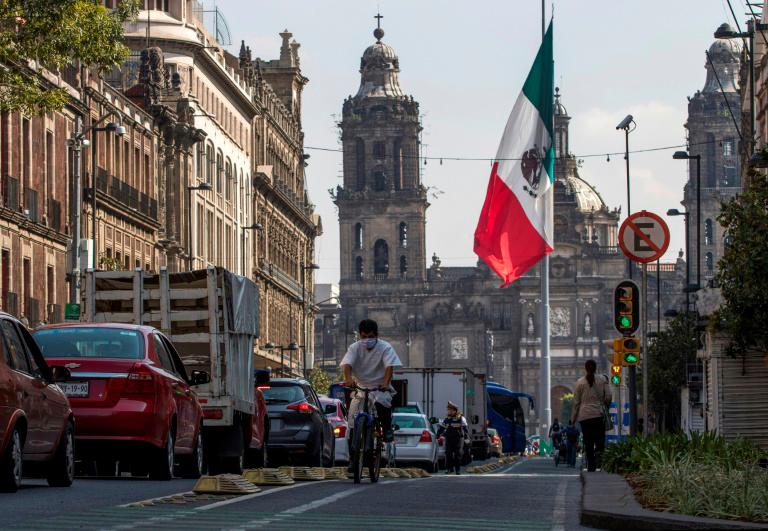TEXCOCO, Mexico: At an orphanage in pandemic-stricken Mexico, the nuns water down milk and eke out food for the children -- victims of violence, poverty, and now the economic fallout from the coronavirus.
Even before donations began drying up because of the disease, it was a struggle for Mother Ines de Maria Piedras and her sisters to keep the shelter located in Texcoco, in central Mexico, running.
Now the Casa Hogar San Martin De Porres y Juan XXIII is facing a critical situation.
Largely dependent on state resources that were already insufficient before the virus struck, the orphanage has lost several benefactors due to the pandemic.
“Many of them were left without work, so they stopped their donations until further notice,“ Mother Ines told AFP.
Since 1965 the shelter has welcomed children who have suffered from mistreatment, sexual abuse or the sudden disappearance of their parents.
Currently 65 children and teenagers live there.
Due to sanitary measures prompted by the virus, the nuns cannot take in more children, or receive visitors from companies or groups that used to bring donations each Saturday.
A sign at the door says clothes and toys are no longer accepted, although some benefactors continue to leave what food they can spare.
“The situation worries us a lot because we have no economic security,“ said Mother Ines, 52, standing in a small room full of toys.
Scars of violence
Most of the children at the orphanage are girls.
Some of those who have been there long enough to see their emotional wounds start to heal flash smiles, while nervous newer arrivals keep their heads down.
Many have been through traumatic times.
One girl’s father murdered her mother and buried her in the yard.
Two young twins were brought to the shelter after their mother simply disappeared.
Texcoco, where the shelter is located, is 30km from Ecatepec, considered the most dangerous town in the country for women.
So far this year, the authorities have recorded 473 suspected femicides across Mexico.
The State of Mexico, home to Texcoco, leads the way with 63 cases.
The children are referred to the orphanage by the authorities.
But the $1,500 a month they give the nuns to care for them all is barely a quarter of what is needed, said Mother Ines, wiping away her tears with her habit during a tour of the kitchen.
‘We perform miracles’
The situation has forced the nuns to take drastic measures, such as diluting the milk with one quarter water, said Barbara de la Rosa, the 37-year-old cook.
“We perform miracles!” she said.
The nuns draw drinking water from their homes because the well they rely on is drying up.
In the shelves for fruit and vegetables there are only a few kilos of potatoes, chayotes -- a type of squash -- and prickly pears, and some sausages in the refrigerator.
Outside, the twins play on the grass.
Here they learned to walk and uttered their first words, but they face an uncertain future.
With nearly 50,000 officially registered coronavirus deaths and around 450,000 cases, the country of 128.8 million has the world’s third-highest fatality toll from the pandemic.
The economy has buckled with an unprecedented plunge of more than 17 percent in gross domestic product (GDP) in the second quarter of the year.
More than 12 million jobs have been lost, particularly in the informal economy.
The nuns have launched an appeal for help and a campaign to raise funds was organized on social media.
But so far the response has been modest.
“It’s worrying,“ said the cook.
Unless the situation improves, “it’s uncertain where the little ones will end up.” — AFP













